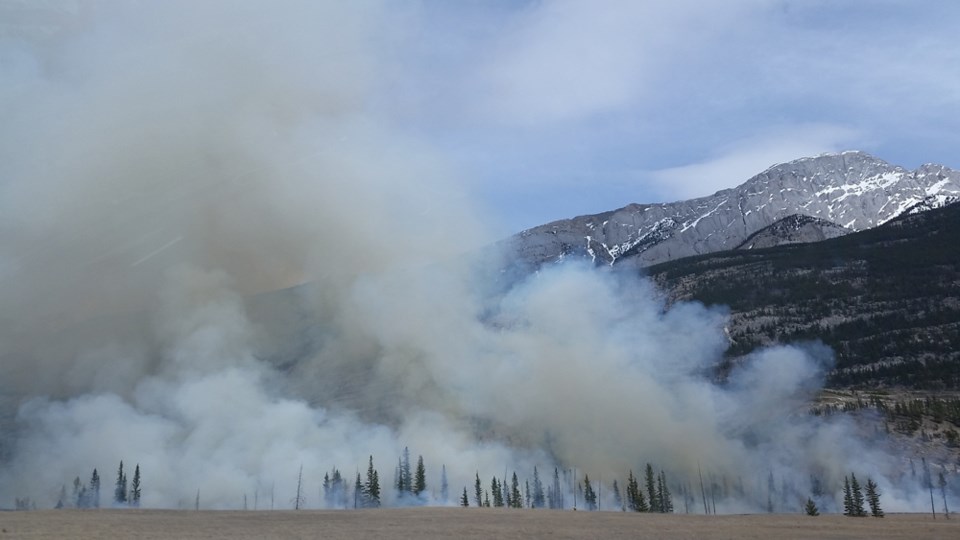Though it might appear as if local plants are suffering from the wildfire smoke, they likely aren't, according to a prominent Squamish gardener.
Some locals noticed that certain foliage doesn't appear to be doing too well at the moment, which is coincidentally at the same time smoke has been blotting out the sun in Squamish.
However, according to Barb Hinde of Squamish CAN, which oversees several community gardens in town, the smoke has “no relevance whatsoever.”
“The reason the plants look a little sad is that it’s getting towards the end of the growing season,” Hinde said.
“Nothing unusual happening there.”
Plants respond to the length of the day more than the brightness of the sun, Hinde said.
“The excessive heat that we’ve had, actually, will cause more damage than the smoke in the air,” she said.
It’s a finding that appears to be echoed by at least one Squamish farmer.
Mike Holmes of Squamish Valley Hops Company says there’s no definitive answer, but from his perspective, the haze hasn’t made a difference.
“Subjectively, no, I don't think so,” said Holmes. “They’re still getting UV through the smoke.”
And there's a twist — in addition to not affecting plants, some academics say that smoke is actually a good thing for foliage.
However, that would depend on how much particulate is in the air.
“A little haze can actually improve photosynthesis by increasing the indirect light (i.e., the reflected light that comes from all parts of the sky) allowing for more even light penetration into canopies (fewer sharp shadows),” said Robert Guy of the University of B.C.'s department of forestry in an email to The Chief.
“The smoke has also dropped temperatures below what they might have been if the skies were clear these past several days, alleviating some of the effects of our ongoing drought situation.”
“It would not be my expectation that the smoke is hurting plants much, but it would depend on how thick it is,” said Guy.
New Mexico State University’s agricultural department also says there could be benefits, but for a different reason.
“Smoke, produced by combustion of some material, means that there is increased carbon dioxide over a limited area,” reads an online post from the university’s site.
“This is good for the plants and can increase their growth if there is sufficient light.”
However, the school said that smoke can have a dark side.
“The smoke particles that we see, however, are particulate pollution which can coat the leaf surface, reducing photosynthesis,” said the department.
“These particulates can also clog stomatal pores, reducing gas exchange in the leaf. These effects are bad for plants.”
***Please note this story has been updated as of 4:36 p.m., Aug. 23.
-Adds comment from UBC




